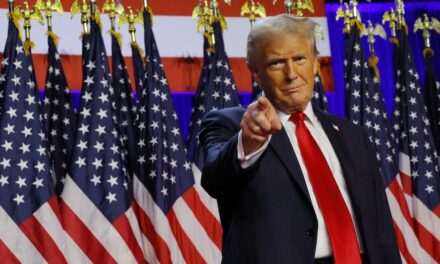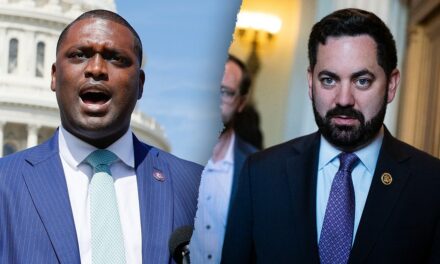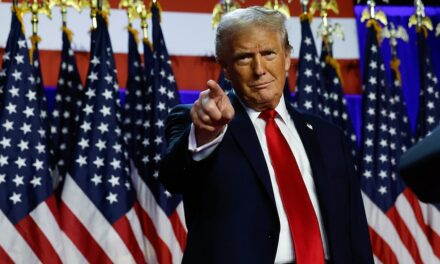We support our Publishers and Content Creators. You can view this story on their website by CLICKING HERE.
President-elect Trump secured a second term in office after defeating Vice President Kamala Harris in the 2024 presidential election race.
Trump served his first term after winning the 2016 presidential election over Democratic opponent and former Secretary of State Hillary Clinton.
Trump is four years removed from the White House after he lost his 2020 bid for re-election to Joe Biden.
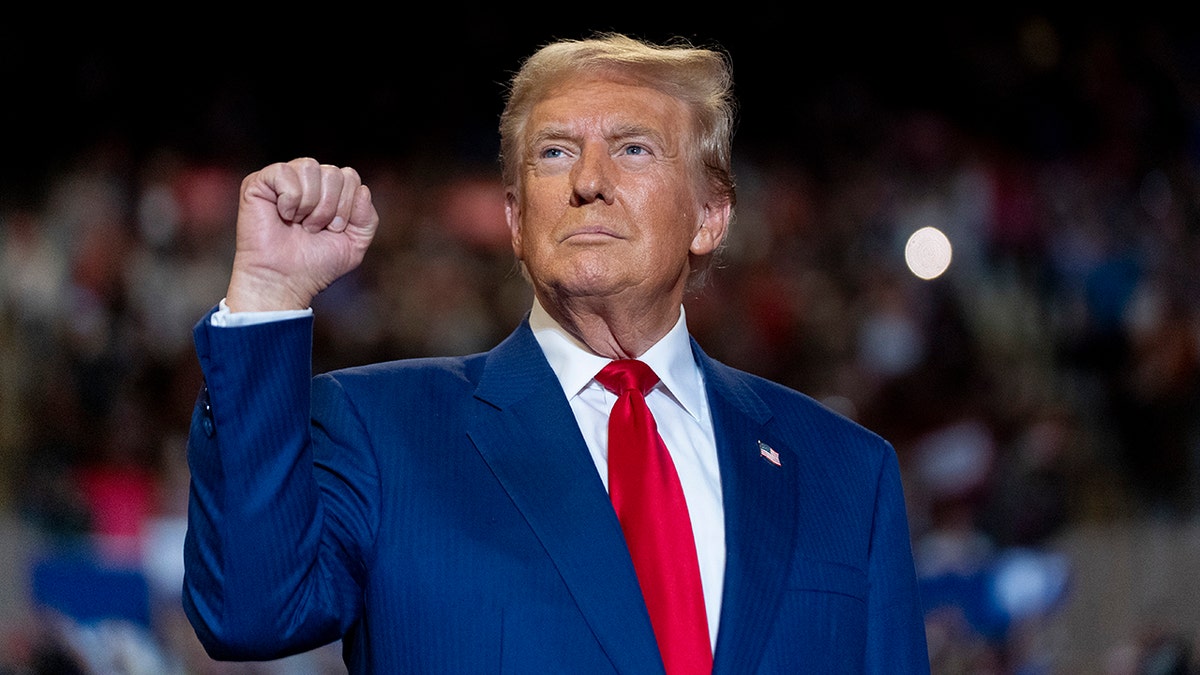
President-elect Donald Trump is heading into his second, non-consecutive term after losing to Joe Biden in 2020. (AP Photo/Alex Brandon)
WORLD LEADERS REACT TO TRUMP VICTORY ‘ON HISTORY’S GREATEST COMEBACK’
Trump kick-started a third campaign for the presidency in 2022, after announcing his bid for re-election shortly following the midterms.
Trump ran on similar issues he focused on during his first term in office, with a secure border and the economy both heavy talking points during his 2024 campaign.
Even though Trump has vowed to the American people to continue building on policies and issues that began during his first term, he has also said things will be different this time around.
A major difference for Trump as he heads into his second term is his many political connections. Trump, a businessman, was missing political pundits from his Rolodex during his first term as president.
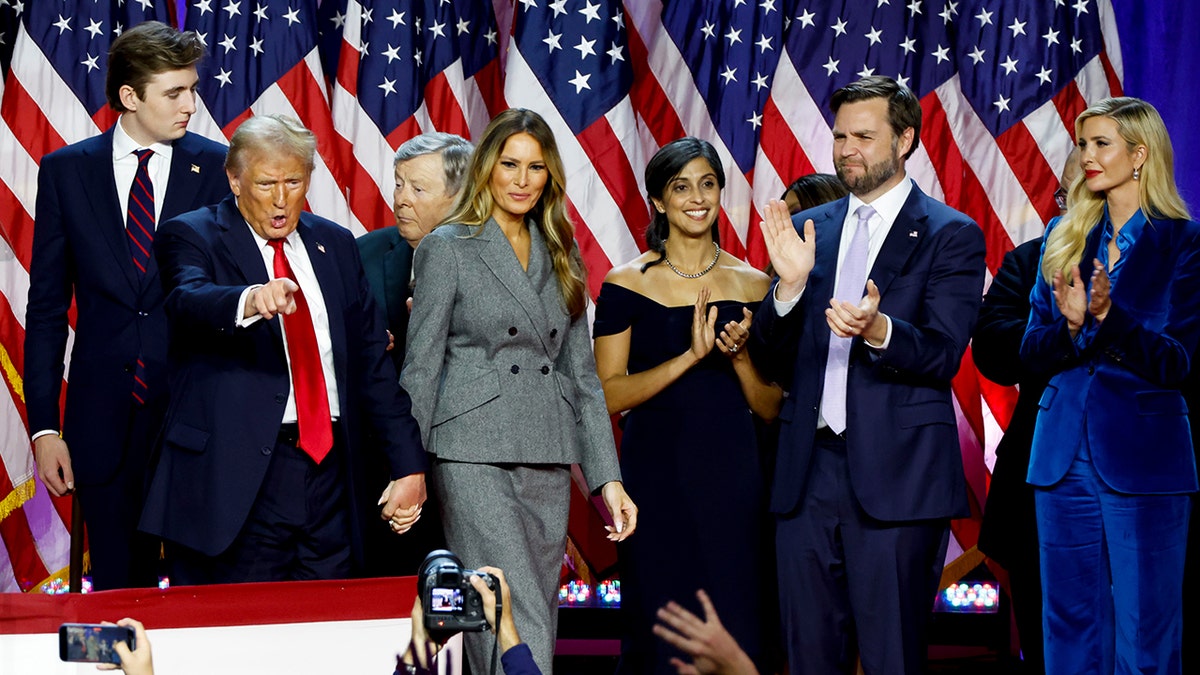
Entering his second term, Trump has more connections in Washington, D.C., than he had before his first term. (Eva Marie Uzcategui/Bloomberg via Getty Images)
FAITH LEADERS REACT TO TRUMP RE-ELECTION: ‘GOD SPARED MY LIFE FOR A REASON’
“I didn’t know anybody [during his first term]. I was not a Washington person. I was rarely there,” Trump told “Hannity” in October. “I know everybody [now]. I know the good, the strong, the weak, the stupid. I know the — I know everybody. And we’re going to make this country great again, and we have to save our country.”
Entering Trump’s first days as president, top agenda items will be securing the border, fixing the immigration system and improving the economy.
Among the highlights of Trump’s first presidency were trade policies, the appointment of federal judges, increased military and protection for veterans, border and immigration control and criminal justice reform.
Additionally, Trump’s economic and foreign policies, energy independence and his response to the opoid crisis are woven into his success.
During Trump’s first term, he signed trade policies with tariffs on foreign aluminum and steel and led the negotiation of trade agreements with Mexico, Canada, China, Japan and South Korea, according to WhiteHouse.gov.
Over 240 federal judges were nominated and confirmed during his presidency, according to NationalArchives.gov. He also appointed Amy Coney Barrett, Neil Gorsuch and Brett Kavanaugh to the Supreme Court.
Trump’s commitment to a strong military and support for veterans was also paramount during his first term.
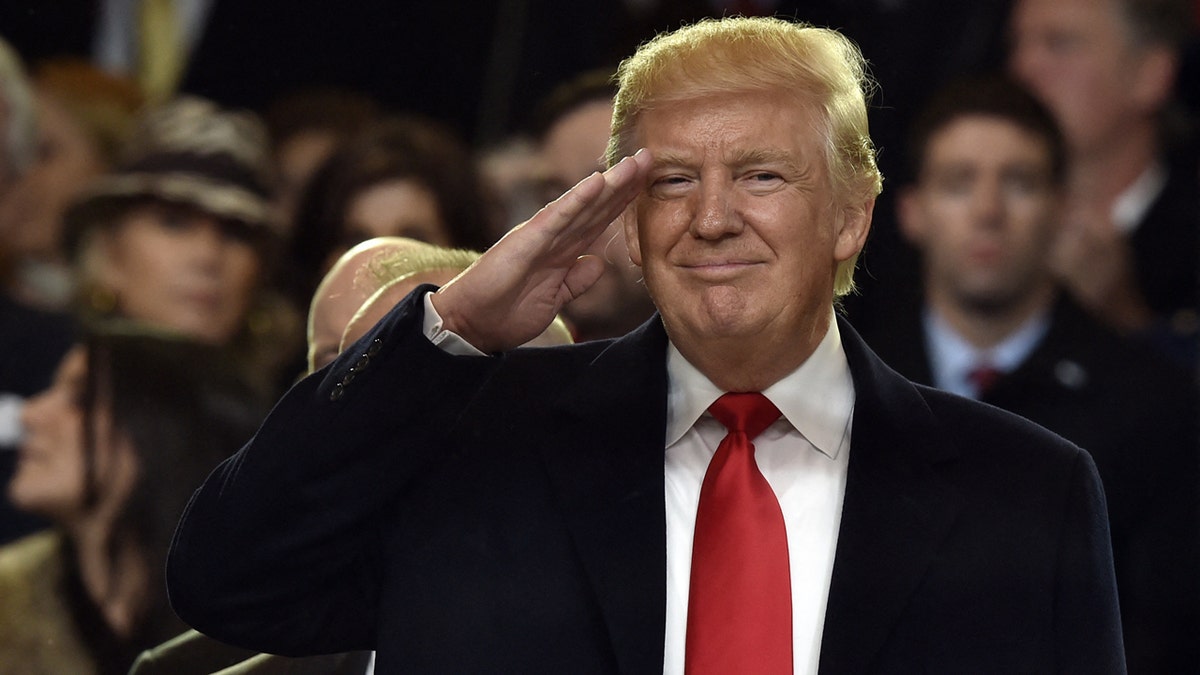
Trump showed support for the military during his first term as president. (Nicholas Kamm/AFP via Getty Images)
During Trump’s first term, a lot of money was invested in defense, including a $1.3 trillion spending bill, according to the U.S. Department of Defense’s website. The Trump administration also established the Space Force, which was the first new branch of the Armed Forces created since 1947.
Support for veterans came from the Trump administration through measures like the VA Mission Act and the signing of the Harry W. Colmery Veterans Education Assistance Act, nicknamed the “Forever GI Bill” in 2017, which brought updates to Veteran Affairs education benefits, according to an online toolkit included on the Veterans Benefits Administration’s website.
During Trump’s first term, efforts began to secure the border, including the construction of over 400 miles of the wall along the U.S.-Mexico border and ending catch-and-release, according to NationalArchives.gov.
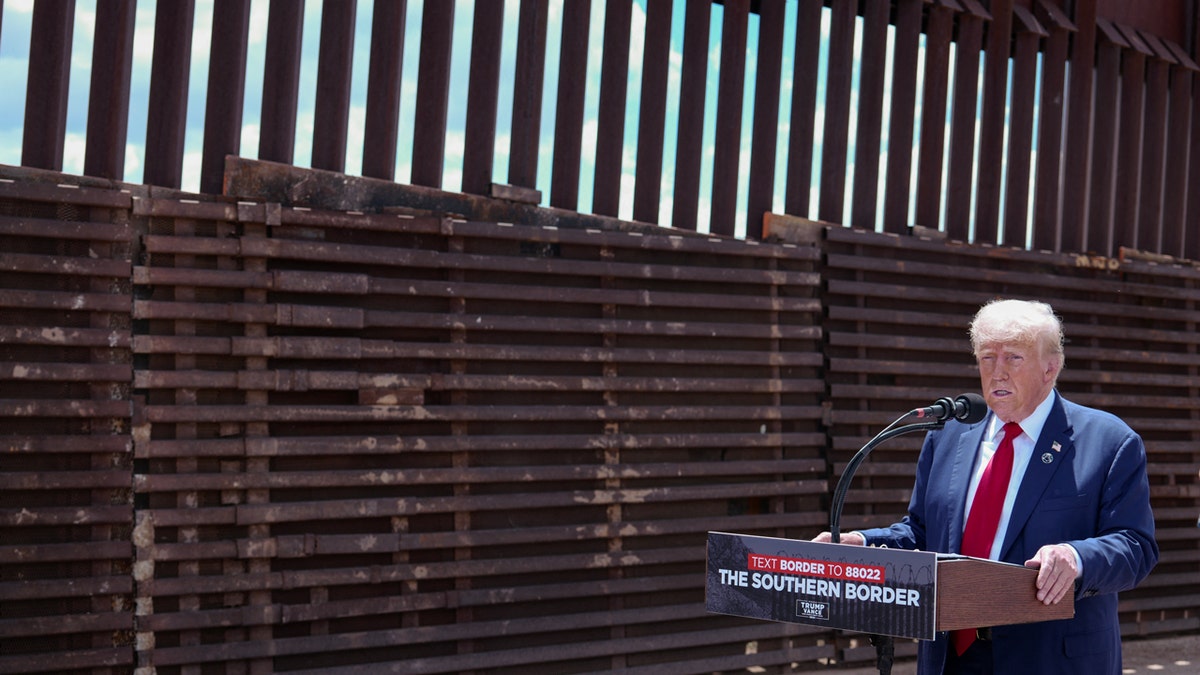
An issue Trump ran on in 2016 and again in 2024 was securing the border. (Olivier Touron/AFP via Getty Images)
Securing the border is an issue Trump ran on during his re-election campaign.
“We’re going to fix our borders,” Trump said Wednesday after his win. “We’re going to fix everything about our country, and we’ve made history for a reason tonight.”
In terms of criminal justice reform, Trump signed the First Step Act into law in an effort to “improve criminal justice outcomes,” according to the Federal Bureau of Prisons’ website. He also launched the Ready to Work initiative to aid in the connection between employers and former prisoners, according to NationalArchives.gov.
Concern about the state of the economy was an issue many Americans shared before they voted during the election.
An example of Trump’s economic policy was his signing of the Tax Cuts and Jobs Act while in office, the largest tax reform package in history, according to NationalArchives.gov.
Trump also signed an executive order on agricultural biotechnology during his first term in office, according to the U.S. Department of State’s website, helping to bring new technology to the farming industry throughout the country.
TRUMP’S STAMINA AT AGE 78 IMPRESSES THE EXPERTS: ‘MENTAL AND PHYSICAL RESILIENCE’
During Trump’s first term, he moved the U.S. Embassy in Israel from Tel Aviv to Jerusalem and also attended a summit with Kim Jong Un in 2018, marking the first time a sitting president met with a North Korean leader, according to WhiteHouse.gov.
Trump also removed the United States from the Iran nuclear deal.
Trump’s first term also included the United States’ withdrawal from the Paris Climate Agreement in 2017. Trump also made improvements to the Keystone XL and Dakota Access pipelines, according to NationalArchives.gov.
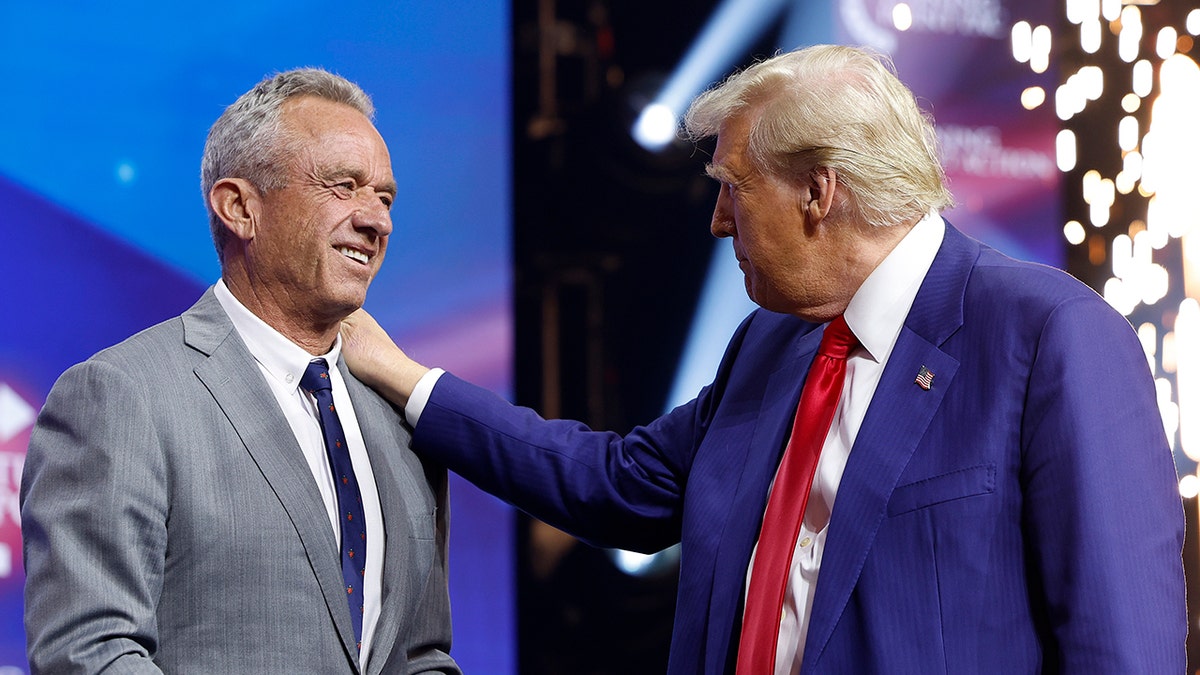
Robert F. Kennedy, Jr. became a part of Trump’s 2024 presidential campaign. (Anna Moneymaker/Getty Images)
Trump declared the opioid crisis a national public health emergency. In 2018, the Department of Justice announced a $320 million investment to combat the crisis.
“President Trump has made ending the opioid crisis a priority for this administration, and under his leadership, the Department of Justice has taken historic action,” Attorney General Jeff Sessions said in a 2018 press release on the U.S. Department of Justice’s website. “Today, we are announcing our next steps: investing $320 million into all three parts of the president’s comprehensive plan to end the epidemic: prevention, treatment and enforcement. We are attacking this crisis from every angle — and we will not let up until we bring it to an end.”
CLICK HERE TO GET THE FOX NEWS APP
Many of the issues Trump focused on during his first term will be priorities during his second term, including the health of the American people.
Robert F. Kennedy, Jr. has led the charge on this issue after endorsing Trump for president and joining his campaign.
Kennedy has also indicated Trump plans to give him “control” over “public health agencies, which are HHS and its sub-agencies, CDC, FDA, NIH, and a few others,” Fox News Digital previously reported.

 Conservative
Conservative  Search
Search Trending
Trending Current News
Current News 